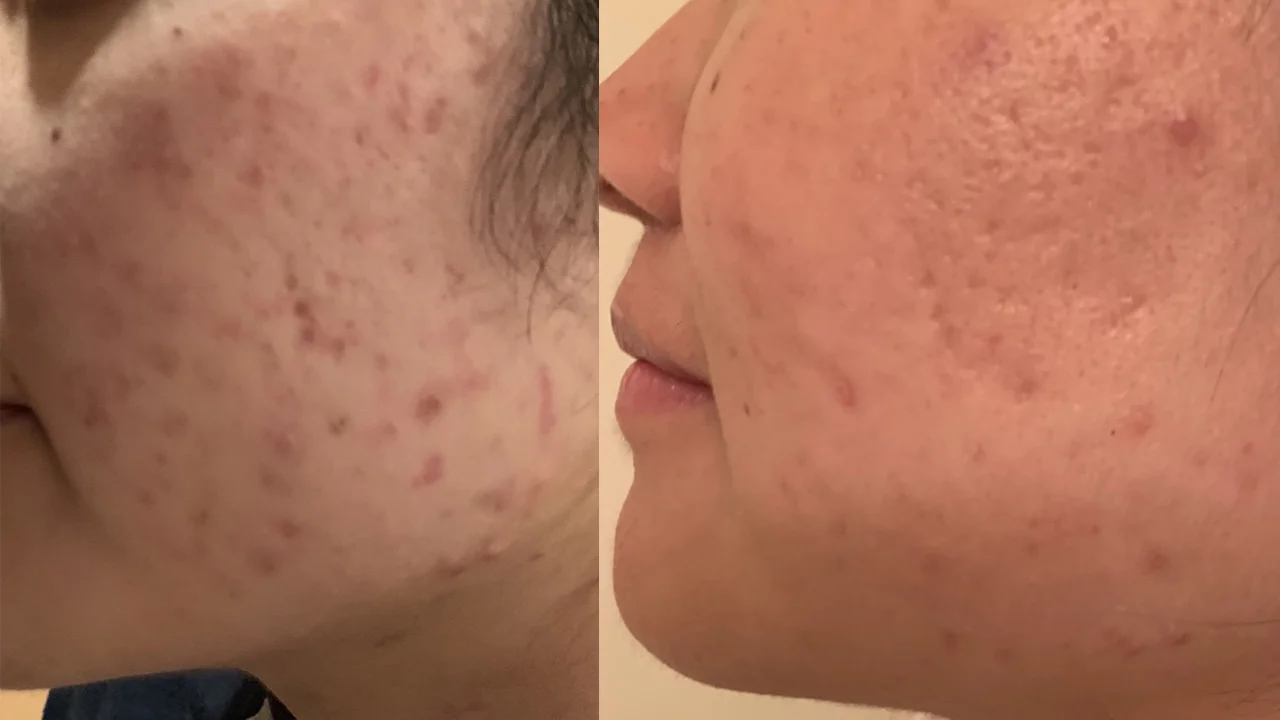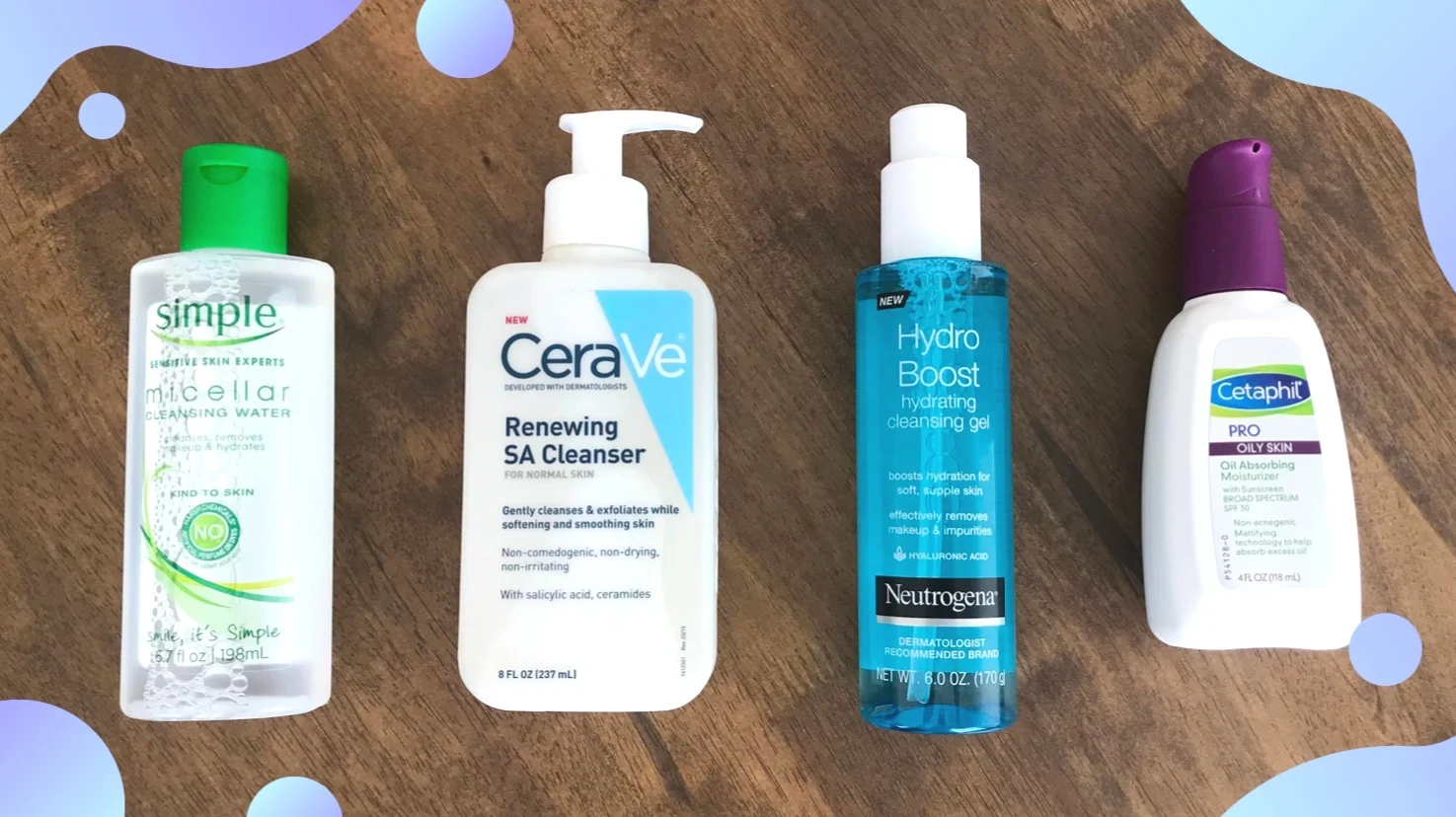Is it Safe to Use Accutane for Acne?
Acne has plagued my life since I was about thirteen. What started with occasional breakouts became constant zits, red marks, and pitted scars that were increasingly difficult to cover with foundation. I tried everything. I bought a Clarisonic and tried acne treatment kits from Proactiv, La Roche-Posay, and Clinique to no avail. And trips to the dermatologist resulted with prescriptions for antibiotics and topical creams that had no end date in sight. All of this led to my decision to try Accutane.
Accutane, also known as isotretinoin, is an oral medication that treats persistent cystic and scarring acne. “Its mechanism of action is mainly based around decreasing oil and sebum production, decreasing inflammation and de-clogging of pores,” says Redondo Beach, CA dermatologist Annie Chiu, MD.
It’s basically prescribed as a last resort when acne doesn’t clear up with other oral and topical treatments.
My dermatologist suggested Accutane to me almost a year ago, but I was too afraid of the side effects to commit to it. “Dry skin, dry eyes, muscle aches are not uncommon,” says Dr. Chiu.
Less common, but more serious side effects include liver issues, elevated blood fats and cholesterol, night vision changes, and mood changes. And Dr. Chiu adds that all of this needs to be monitored regularly. All of this was enough to scare me away from it at the time, but another year of my acne controlling my life finally convinced me to go for it.
Typically, Accutane patients take the medication daily for about four to six months. However, Dr. Chiu says, “Studies show approximately 20 percent of patients can relapse months to years after [their first] Accutane treatment and may require a second round of Accutane. It has been shown to be safe to do in these cases under the same physician supervision.”
There’s also a lot more involved in the treatment process than just remembering to take your daily dose.
First, you have to enroll in the iPledge program before you even begin the treatment.
“iPledge is an electronic based risk-management program for both prescribers and patients who take Accutane,” says Dr. Chiu. “The primary goal of the program is to prevent fetal exposure to Accutane, which can cause birth defects if a woman takes this medication while they are pregnant.”
In the program, the patient takes monthly pregnancy and blood tests and must answer an online questionnaire about birth control and Accutane before the prescription is able to be filled again.
You also have to make a few lifestyle and diet changes while on Accutane. In terms of skincare, avoiding “any product that is drying to the skin, from astringent to hot water” is key according to Los Angeles, CA dermatologist Ava Shamban, MD.
Dr. Chiu agrees, adding, “Any topical skincare should be gentle and hydrating, with avoidance of products that increase exfoliation, like salicylic/glycolic acids, or topical retinoids".
Diet-wise, heavy drinking and consuming large amounts of fat should be avoided since the drug can increase blood fats. Accutane is a form of vitamin A, so you should also refrain from consuming additional vitamin A supplements to avoid excess. It’s fine if the vitamin A is found in a multivitamin, but pure vitamin A supplements should be avoided.
MY EXPERIENCE SO FAR
I just passed my second month of Accutane and I’ve already seen results. My skin is smoother and looks a lot less red and irritated. I still have to wear foundation to cover up the red marks, but it’s a lot easier to cover redness than cystic acne bumps. Even family members and friends who I haven’t seen since before beginning the treatment have noticed a difference.
Before beginning Accutane
After the first month
As for side effects, I’ve experienced super chapped lips that stay flaky and crusty unless I diligently and regularly apply Burt’s Bees and Aquaphor on them. I’ve had dry skin, dryness in my nostrils, extreme thirst, and more sensitive skin. For example, if I have an itch and scratch a little too hard, it leaves a small mark.
Overall, the side effects I’ve experienced haven’t been too terrible. It’s annoying, but easily manageable with extra preparation. For example, I have a set of Burt’s Bees and Aquaphor in every location possible like my nightstand, my car, and in any bag I take with me throughout the day. I also apply SPF every morning and never ever leave the house without a full water bottle.
My skincare routine has also changed since going on the medication. It’s a lot simpler and gentler since “the epidermis or top layer is more dry and more delicate while on Accutane,” says Dr. Shamban. This also means that my routine requires a few less steps now, which, honestly, has been kind of nice.
My current morning routine consists of three products. I wash my face with Cetaphil Gentle Skin Cleanser ($12), I apply Cetaphil Daily Hydrating Lotion ($12), and then I top it off with Elta MD Sunscreen SPF 46 ($35).
And then at night, I double cleanse starting with either The Face Shop Rice Water Cleansing Oil ($12) or Farmacy Green Clean Balm ($34), and do my second cleanse with the Cetaphil cleanser from the morning. Last, I top it all off with CeraVe Moisturizing Cream ($14).
Despite the annoying side effects, the regular doctor’s appointments, and the monthly pregnancy and blood tests, I believe going on Accutane has been one of my best decisions for my skin and for my quality of life. Acne has felt like a prison preventing me from fully being myself. I still have a long way to go before my skin is completely clear, but I’m so excited to finally live my life acne-free.
Have you tried Accutane? I’d love to hear your experience in the comments below!










